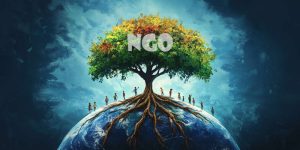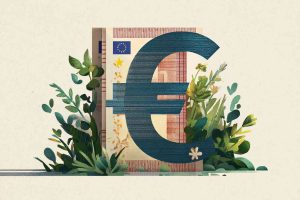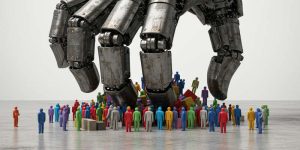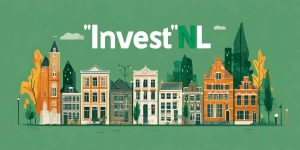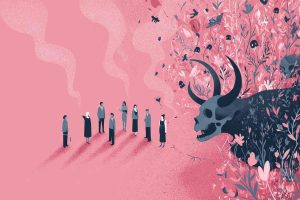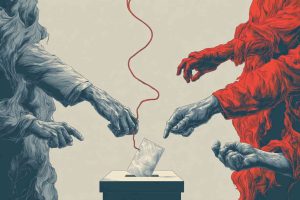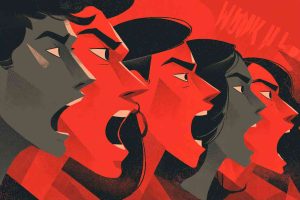Inflation is theft, how governments and central banks quietly rob their citizens

Understanding the nature of inflation
Inflation is often presented as a natural, even healthy part of a functioning economy. Central banks, economists, and political institutions regularly claim that a moderate level of inflation, around two percent annually, is beneficial. It supposedly stimulates spending, reduces the burden of debt, and prevents deflation. But this framing hides a deeper truth. Inflation is not a neutral phenomenon, it is a mechanism that allows governments and financial institutions to extract wealth from the population without their knowledge or consent.
Rather than being a mysterious byproduct of economic growth, inflation is the direct result of policies enacted by central banks and governments, and its consequences are not distributed equally. While those close to the source of money creation benefit, ordinary citizens suffer the loss of purchasing power. In this sense, inflation functions as a form of institutionalized theft, silently eroding the value of people’s money while presenting itself as economic necessity.
The real cause of inflation, money creation without value
At its core, inflation is caused by an increase in the money supply that outpaces economic productivity. When central banks such as the European Central Bank (ECB) or the United States Federal Reserve create money without a corresponding increase in goods and services, the value of each unit of currency declines. This devaluation is what causes prices to rise.
In modern times, especially since the 2008 financial crisis and the COVID-19 pandemic, central banks have engaged in massive rounds of money creation, known as quantitative easing. These programs involve buying government bonds and other financial assets with newly created money, which is then injected into the financial system. According to the Bank of England (What is Quantitative Easing?, Bank of England), this process is meant to lower interest rates and stimulate spending. However, it also floods the market with excess liquidity, which drives up the prices of goods, services, and assets.
Between 2020 and 2022 alone, the US Federal Reserve expanded its balance sheet by more than 4 trillion dollars (Federal Reserve Balance Sheet, FRED). Similar policies were adopted by the ECB, which saw its own balance sheet swell from under 5 trillion euros to over 8.5 trillion euros (Statistical Data Warehouse, ECB). This explosive growth in the money supply had immediate consequences. Prices for food, energy, housing, and basic necessities soared. According to Eurostat, inflation in the eurozone reached over 10 percent in 2022, the highest in decades (Euro area annual inflation, Eurostat).
These price increases did not reflect an actual shortage of goods or an improvement in quality, but rather the dilution of the currency’s value. In other words, the same money bought less because governments had created more of it out of thin air.
Who pays, and who profits
Inflation does not affect everyone equally. While mainstream economists often describe it as a general increase in prices, this obscures the asymmetrical effects of inflation on different parts of society.
Those most harmed by inflation are:
- Savers: People who have saved money in bank accounts see their purchasing power decrease year after year. When interest rates are below inflation, savings actually lose value in real terms. For example, if your bank offers 1 percent interest while inflation is at 6 percent, you lose 5 percent in purchasing power each year. Over a decade, this compounds into a significant loss.
- Wage earners: Salaries rarely rise in line with inflation, and when they do, it is often after a significant lag. According to the OECD, real wages in many European countries declined during 2021 and 2022, even as nominal wages increased, because inflation outpaced those wage hikes (Real Wages Growth, OECD).
- Retirees: Pensioners living on fixed incomes are disproportionately affected, especially if their benefits are not indexed to inflation. Their standard of living declines year after year, even though they did nothing wrong.
- The poor and working class: These groups spend a higher proportion of their income on necessities like food, housing, and energy, all of which are heavily affected by inflation. This leaves them with less flexibility to adapt, save, or invest.
In contrast, those who benefit from inflation include:
- Governments: Inflation reduces the real value of public debt. Since governments borrow in nominal terms, they repay that debt with money that is worth less. As prices rise, tax revenues also increase automatically, without needing to raise tax rates. This makes inflation a hidden tax on the population.
- Banks and financial institutions: These entities receive newly created money first, allowing them to spend or invest it before prices rise. This is known as the Cantillon Effect, named after the 18th-century economist Richard Cantillon. According to this theory, those closest to the source of new money benefit at the expense of those further away.
- The wealthy and asset owners: People who own real estate, stocks, and commodities often see the value of these assets rise with inflation. While cash becomes worth less, assets maintain or increase their value, allowing the wealthy to protect or even grow their purchasing power.
Inflation as silent expropriation
Unlike traditional taxation, inflation does not require parliamentary approval, a tax law, or a public vote. It occurs quietly, through central bank decisions made behind closed doors and largely beyond democratic control. The average citizen receives no notification that their money is being devalued. Instead, they discover the effects at the checkout counter, in their utility bills, or when trying to pay rent.
This is what makes inflation particularly insidious. It is a form of non-transparent wealth transfer, from the public to the state and its financial allies. According to economist Friedrich Hayek, inflation is “probably the most important single factor in turning the attention of people away from the real causes of their misfortunes” (Denationalisation of Money, Friedrich Hayek). In other words, people become poorer, but they do not understand why, and therefore cannot effectively resist or correct it.
As the historian Niall Ferguson has pointed out, inflation has historically been used by governments to manage debt and suppress dissent (The Ascent of Money, Niall Ferguson). From ancient Rome to Weimar Germany to modern Venezuela, currency debasement has always been a tool of state control, often preceding economic collapse or authoritarian centralization.
The role of central banks and the myth of independence
Central banks claim to be independent institutions tasked with maintaining price stability. In reality, they are closely intertwined with governments and often act to accommodate fiscal deficits. For example, when the ECB engages in massive government bond purchases, it enables eurozone governments to run deficits without having to raise taxes or cut spending.
The supposed independence of central banks has been increasingly questioned. As the European Court of Auditors noted in a 2018 report, the ECB’s asset purchase program lacked transparency and posed significant risks to financial stability and democratic accountability (ECB’s asset purchases, European Court of Auditors). Similarly, former Federal Reserve Chair Alan Greenspan acknowledged that “there is no other agency of government which can overrule actions that we take”, emphasizing just how unchecked their power truly is.
Moreover, central banks have redefined “price stability” to mean perpetual inflation of around two percent per year, which guarantees a continual erosion of purchasing power. Over time, this approach ensures that no savings are safe unless invested in risky financial instruments. This forces people into markets they may not understand or trust, while concentrating wealth and control into the hands of large financial actors.
The illusion of harmless inflation
Supporters of inflationary policy often argue that it is a necessary evil to promote growth. But historical evidence suggests otherwise. Sustained inflation distorts economic signals, encourages debt over savings, and promotes speculative behavior over productive investment. When money loses value over time, people are incentivized to spend quickly rather than save, which undermines long-term planning, stability, and intergenerational wealth.
The economist Ludwig von Mises warned that inflation “produces a shift of wealth and income, it creates winners and losers, it is always arbitrary and never fair” (Human Action, Ludwig von Mises). In the long run, inflation leads to social unrest, distrust in institutions, and economic fragility.
A path to sound money
To break the cycle of hidden theft through inflation, a fundamental rethinking of monetary policy is required. Possible steps include:
- A return to monetary discipline, where central banks cannot create money to fund government deficits.
- Currency backed by real assets, such as gold or commodities, to prevent reckless expansion of the money supply.
- Restoration of honest interest rates, allowing savers to be rewarded for delayed consumption.
- Greater transparency and democratic oversight of central bank operations.
- An end to the ideology of perpetual growth through debt and inflation, and a renewed focus on sustainable, value-based economics.
Conclusion
Inflation is not a benign or technical detail of modern economics. It is a deliberate policy tool that transfers wealth from the many to the few. While it operates quietly, its consequences are profound. It erodes savings, undermines wages, distorts markets, and deepens inequality. It is a form of legalized theft, hidden behind jargon and institutional complexity.
As long as inflation continues to be used as a solution to political and fiscal irresponsibility, citizens will remain vulnerable to being robbed of their time, their labor, and their future. Recognizing inflation for what it truly is, a systemic betrayal of trust, is the first step toward restoring economic fairness and individual sovereignty.

